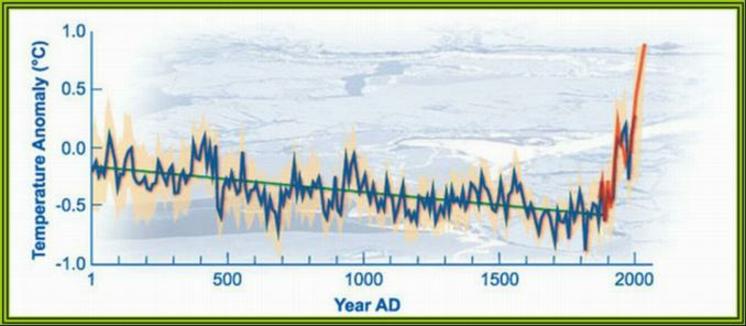ScienceDaily (Dec. 6, 2002) — The prevailing view among scientists is that global climate change may prove beneficial to many farmers and foresters – at least in the short term. The logic is straightforward: Plants need atmospheric carbon dioxide to produce food, and by emitting more CO2 into the air, our cars and factories create new sources of plant nutrition that will cause some crops and trees to grow bigger and faster. But an unprecedented three-year experiment conducted at Stanford University is raising questions about that long-held assumption. Writing in the journal Science, researchers concluded that elevated atmospheric CO2 actually reduces plant growth when combined with other likely consequences of climate change – namely, higher temperatures, increased precipitation or increased nitrogen deposits in the soil.
The results of the study may prompt researchers and policymakers to re-think one of the standard arguments against taking action to prevent global warming: that natural ecosystems will minimize the problem of fossil fuel emissions by transferring large amounts of carbon in the atmosphere to plants and soils.
"Perhaps we won't get as much help with the carbon problem as we thought we could, and we will need to put more emphasis on both managing vegetation and reducing emissions," said Harold A. Mooney, the Paul S. Achilles Professor of Environmental Biology at Stanford and co-author of the Dec. 6 Science study.
He noted that the Stanford study is the first ecosystem-scale experiment to apply four climate change factors across several generations of plants. "To understand complex ecological systems, the traditional approach of isolating one factor and looking at that response, then extrapolating to the whole system, is often not correct," Mooney said. "On an ecosystem scale, many interacting factors may be involved."
"Most studies have looked at the effects of CO2 on plants in pots or on very simple ecosystems and concluded that plants are going to grow faster in the future," said Field, co-author of the Science study. "We got exactly the same results when we applied CO2 alone, but when we factored in realistic treatments – warming, changes in nitrogen deposition, changes in precipitation – growth was actually suppressed."
To mimic future climate conditions, Field, Mooney and their colleagues mapped out 36 circular plots of land, each about six feet in diameter. Four plots are virtually untouched, receiving no additional water, nitrogen, carbon dioxide or heat. Each of the remaining 32 circles is divided into four equal quadrants separated by underground partitions to prevent roots in one section from invading neighboring tracts. In these smaller quadrants, researchers study all 16 possible combinations of elevated and normal CO2, heat, water and nitrogen.
The biggest surprise from the study was the discovery that elevated carbon dioxide only stimulated plant growth when nitrogen, water and temperature were kept at normal levels.
"Based on earlier single-treatment studies with elevated CO2, we initially hypothesized that, with the combination of all four treatments together, the response would be additional growth," said W. Rebecca Shaw, a researcher with the Nature Conservancy of California and lead author of the Science study. But results from the third year of the experiment revealed a more complex scenario. While treatments involving increased temperature, nitrogen deposition or precipitation – alone or in combination – promoted plant growth, the addition of elevated CO2 consistently dampened those increases.
"The three-factor combination of increased temperature, precipitation and nitrogen deposition produced the largest stimulation [an 84 percent increase], but adding CO2 reduced this to 40 percent," Shaw and her colleagues wrote.
The Entire Article
Welcome to By 2100!
This Blog is designed to be a Diary of Events illustrating Global Climate Change, and where it will lead.
Commentary is encouraged, but this Blog is not intended for discussion on the Validity of Climate Change.
Category Labels
- Climate Events (85)
- Climate Solutions (45)
- Videos (42)
- Climate Statistics (39)
- The Deniers (34)
- Humour (15)
- Basic Information (5)
Subscribe to:
Post Comments (Atom)
www.know-the-number.com
Our Climate is Changing!Please download Flash Player.

No comments:
Post a Comment